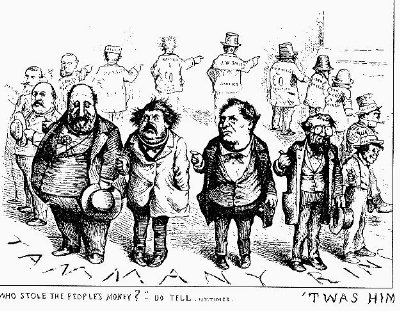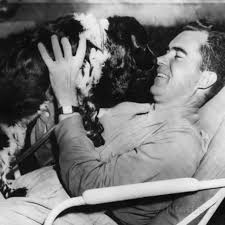8-29-1918
MISS RANKIN LOSING
Scattered returns from thirty-six out of fifty-three counties showed Dr. O. M. Landstrum maintaining his lead over Jeannette Rankin for the Republican nomination for United States Senator. The votes stood tonight: Landstrum, 10,004; Rankin, 6,582.
………………………
June 2, 1932
Peace Caravan Is Lead by Jeannette Rankin
Pilgrimage, Starting from Capital, Will Be Met by Others at Chicago Conventions
Miss Jeannette Rankin of Montana, the first woman elected to the House of Representatives, and Miss Emma Wold of Oregon, technical adviser to the American delegation at The Hague Conference on the Codification of International Law two years ago, left Washington at noon today on an automobile speaking tour in the interest of peace. They are to reach Chicago on the eve on of the national conventions. Half a dozen cars, bearing flags and banners pleading for peace, followed theirs.
The expedition is to reach Chicago in time for the national conventions and there meet similar caravans starting from various parts of the country.
The travelers will include not only representatives of numerous peace organizations but also, according to the sponsors, the “large unorganized peace vote throughout the country,” which will unite in demanding peace planks in both party platforms.
According to William Brown of Washington, a Cornell graduate, his university will be represented in the pilgrimage, as well as Yale, Colgate, Pennsylvania State, Rochester, Syracuse, Washburn College, Washington University, Wesleyan University and others.
The “Chicago Peace Plan” of which Miss WOld is executive director is directed by a group including Mrs. Edward P Costigan, wife of Senator Costigan; Mrs. Emily Newell Blair, former vice chairman of the Democratic National Committee; Dorothy Canfield Fisher, Zona Gale, Kathleen Norris, Katherine Anthony, Mrs. Alice W Hunt and Mrs. Florence Brewer Boeckel.
………………………….
9-11-1933
“ROOSEVELT ASKED TO AID REFUGEES; Civil Liberties Union Urges Broader Asylum for Nazi Victims and Others. OUR TRADITIONAL POLICY Revision of Hoover Executive Order Suggested by 36 Signers of Memorial.”
(yes, signing the petition for easier asylum for Nazi victims is Jeannette Rankin.)
………………………………………
Apr 4, 1937
“NORRIS STANDS BY VOTE AGAINST WAR; Survivor of Six in Senate to Oppose It Declares After 20 Years He Would Do It Again DEPRESSION AS ‘HARVEST’ Nebraskan Declares Stated Aims Lost in Results of ‘Commercial’ Conflict Surrender to Money Power” Destructive Economic Ends” Cause of Present Suffering”
Twenty years ago tomorrow, the United States Senate passed the resolution declaring war against Germany. Only six Senators ventured to vote against the measure: La Fallette [sic] of Wisconsin, Norris of Nebraska, Lane of Washington, Stone of Missouri, Vardaman of Mississippi and Gronna of North Dakota.
Senator Norris alone survives to retell the tale to his younger colleagues. He is doing so at an unusual reunion in Washington of the twenty-five former mebers of the House or Representatives now living who, with twenty-five others since deceased, voted against war on April 6, 1917.
The dinner and reunion will be a private affair, with reporters excluded. Many of those invited, including Miss Jeannette Rankin former Representative from Montana and first woman elected to Congress, have not met each other since the adjournment of the Sixty-fifth Congress.
Seated in the Senate Office Building, Senator Norris, veteran Progressive, discussed in an interview the war and his opposition to it. Asked whether he had ever regretted his negative vote of April 4, 1917, or changed his view of the matter, the Senator replied quietly.
“In my service of nearly thirty-five years in Congress, I have undoubtedly made many mistkes, but I am more than ever convinced that my vote against the declaration of war in 1917 was not one of them.
“I am not sorry I opposed it. I should do it again if Congress were again confronted with that sort of problem in economics and moral decision . And I would not be along — or nearly so — today.
“I said then that we were surrendinger the policy of the country to the money power, and putting the dollar sign above the flag. And I have never seen any reason to withdraw the statement, but on the contrary, much evidence that confirmed it, as the years have passed.
“At the end of the war Woodrow Wilson publicly admitted that it had been primarily a commercial war, which was another way of saying what Senator La Follette and I had declared to be the facts.
“It was basically fought for, or occasioned by, economic and financial reasons and ends — and it was ruiniously destructive to every lasting interest of the American people.
“The large banking and business interests were making so much money, so fast, while we were nominally neutral that they sson discovered that they would have to lend money to the Allies in large quantities to keep up the game and keep our industries humming and expanding.
“When the Allies’ credit was stretched to the breaking point, and the private money-lenders had exhausted their resources, the next step was to open the Treasury of the American people, by a declaration of war.
“We went into that terrible war largely to collect the debts of the money-lenders, who were promptly paid out of the public treasury for what they had lent to their friends abroad and spent on all sorts of munitions in this country. But the queer thing about it all was that we were never able to collect the debts due this government.
“The terrible condition we are now in, and the wasting depression, in which all classes of our people are suffering, would affect us only in minor degree if we had kept out of that war. It was a war where no victory was possible. The vanquished suffered no more than the victorious.
“While thousands and millions of men were killing each other in France and Russia, other thousands, safe at home, were coining their blood into private gain and gold. It is always so. The rich were made richer, the poor poorer, here as in other countries.
“Fewer people own more of the wealth of the world today than ever since the days of the Roman Empire. If they are not to own all of it, this tiny minority, while the rest of us are reduced to the status of peasants and economic slaves, certain vital reforms are necessary at home, and war must be avoided abroad.
“Although I suffered some ostracism and much abuse, and was condemned by the foulest name of ‘traitor’ for my opposition to the war, I am still an optimist about life in America.”
…………………………………
11-7-1940
‘COMEBACK’ SCORED BY MISS RANKIN; WOMEN WHO WILL SERVE IN THE SEVENTY-SEVENTH CONGRESS
After an absence of twenty-two years from the political arena, Miss Jeannette Rankin of Montana, a Republican, the first woman to be elected to Congress, achieved a “comeback” in yesterday’s returns which makes her the single addition to the feminine contingent amongst the lawmakers in the national capital. Eight woman will serve in the next session of Congress, five of whom are Representatives who stood for re-election on Tuesday.
“Miss Jeannette,” who will be remembered as one of the members of the House of Representatives who voted against the entry of the United States into the first world war (shedding tears as she did so) won a closely contested race against the Democratic incumbent from her district, Jerry J. O’Connell. The decision was amongst the last to be made, the issue remaining a long time in doubt.
Since her initial tenure, Miss Rankin has been a lobbyist for peace in Washington.
…………………………………….
Dec 9, 1941
“ASKS MISS RANKIN RECANT; Montana Republican Leader Says State Deplores Anti-War Vote”
Represntative Jeannette Rankin, Republican, of this State, who cast the only vote in Congress against war on Japan, was called upon by Dan Whetstone, Montana Republican National Committeeman, to “redeem Montana’s honor” by changing her vote.
Mr. Whetstons telegraphed Miss Rankin the following:
“As soon as word of the treacherous attack of Japan on American possessions reached this State, Montanans made the only decision possible for loyal Americans, to assert full support to the Administration in defense of this nation.
“Messages from all parts of Montana indicate disappointment over your attitude in failing to support the war declaration. I urge and bessech you to redeem Montana’s honor and loyalty and change your vote as early as possible.”
……………………………………
12-12-1941
“Miss Rankin Voted ‘Present’ in Weak Voice; Clerk Had to Call Her Name a Second Time”
In a voice so weak the clerk had to call for her vote a second time — and in a tone very different from her distinct “No” of Monday — the lone member of Congress who had opposed declaring war on Japan answered “present” today to the roll-call on accepting Adolf Hitler’s challenge to fight.
Miss Jeannette Rankin, Republican of Montana, long-time peace advocate who voted against fighting Germany twenty-four years ago, also answered “present” when the question of replying to Italy’s war declaration came around.
It had been a terrible week for Miss Rankin — and she showed the strain. When the House convened, and while the Representatives were waiting for the expected message from the President, Miss Rankin sat in the galleries, crowded with young persons, most of them looking as if they were secretaries and clerks from Congressional offices.
As the time neared for the President’s message Miss Rankin went onto the floor. Several members stood talking to her in the aisle.
When the clerk began to read she took her seat. Representative Everrett Dirksen, Republican of Illinois, sat on her left and talked to her for a time as the roll-call started. She shook her head.
As the clerk’s voice droned through the alphabet, nearer and nearer to “R,” Miss Rankin nervously clasped and unclasped her handbag.
Called the clerk: “Rankin of Mississippi.” Miss Rankin leaned forward. She was next.
“Rankin of Montana.” She spoke. There was a moment’s hesitation, indicating that the clerk did not hear her reply. She spoke out again. “Present.” She leaned back. There was no booing as on Monday.
The resolution on declaring war against Italy was introduced. The members on the floor grew restless, the galleries began to empty. It was a thrice-told story and it had lost its appeal. The Speaker halted the roll-call until order was restored.
Her name was reached. “Present”– a firmer voice this tiem.
Then she went into a cloak room off the floor. She was sitting in an armchair, eating an apple and drinking milk, when the House, by voice vote, approved the sending of armed forces anywhere to win victory for the country.
……………………………….
12-12-1941
“SILENT GALLERIES WATCH WAR VOTE; Hear President’s Message and the Roll-Call on Germany, but Refuse to Stay for Italy HOUSES ACT IN CONCERT Poll Members Simultaneously — McNary Presents Republican Pledge of Support”
Without hesitation and without debate, and as rapidly as parliamentary procedure would permit, the Congress cast two more war votes today to carry the United States formally and constitutionally into battle to the finish with the Axis on all fronts.
No member of either house voted “no” on going to war against Germany and Italy.
One, Representative Jeannette Rankin of Montana, who voted against the 1917 declaration of war against Germany and who voted on Monday against accepting the Japanese challenge in the Pacific voted “present.”
Substitution, by unanimous House consent, of Senate texts to prevent procedural delays removed even this reservation.
…………………………..
12-13-1941
“LOS ANGELES SETS BLACKOUT RULES; Council Votes Jail and Fines for Violators — Police Transfer Japanese-American Clerks 6 CITIZENS UNDER ARREST One Is Quoted as Urging lmpeachment of President — Miss Rankin Hailed”
A drastic blackout ordinance, providing a six months’ jail term and a $500 fine for violators, wass passed by the City Council today as local and Federal officials moved on several fronts to tighten the city’s defenses and stamp out seditious actions.
Among other developments were the seizure of two French ships by the Coast Guard and internment of their crews; the transfer of six Japanese-Americans from key clerical positions in the records and communications division of the Police Department, and the arrest and arraignment of six American citizens on charges of “conspiracy to make false statements intended to interfere with operations of United States military and naval forces.”
The six arrests, the first made in this area since the start of the war, were of Robert K. Noble, 44, one of the original “ham and eggs” groups and admittedly a Hitler admirer; Ellis O. Jones, identified as a former eastern magazine editor and pacifist who went to Europe with Henry Ford’s peace ship during the last World War, and four of their followers, Leone Menier, 31, Mr. Noble’s secretary George Friend, 19, Mrs. Greta Robins, 40, and Mrs. Agnes Norman, 47.
They were arrested following a meeting of about 100 persons at which Mr. Noble was quoted as saying Japan had not attacked the United States and as urging impeachment of President Roosevelt.
The meeting gave a standing vote of thanks to Miss Jeannette Rankin for her vote against the war resolution. Arrested by Federal Bureau of Investigation agents as they left the meeting, the six were arraigned before the United States Commissioner Head and held in $25,000 bail each for a hearing Dec. 23.
The French ships seized were the freighters Wisconsin and Vannes, which had been in the harbor since June, 1940. Their offices and crews, fifty-nine men in all, were confined to the immigration station at Terminal Island.
The country defense council, charged with coordination of all civilian defense agencies, discussed plans to standardize blackout and air-raid alarm signals, procedures and efforts to avoid confusion in any further crises that may arise.
There was no repetition last night of Wednesday night’s blackouts but the city had two alerts of about an hour’s duration, the first from 9:42 to 11 P.M. and the second from 2:30 to 4 A.M.
San Diego, site of the west coast’s biggest naval base, was blacked out during the early morning alarm, which was sounded there several minutes ahead of Los Angeles. “Unidentified planes” were reported over the city and off Point Loma, near San Diego.
There has been much speculation here as to the possible base of the “unidentified planes” which have been reported in the area the last two nights. Possibility that such a base might be located in sparsely settled Lower California, where border rumors have placed large concentrations of armed Japanese, have gained the most credence.
Local Mexican sources, although not discounting the possibility, doubt the presence of any great concentration of Japanese and express the conviction that Mexican authorities can handle the situation. Whether American aid in policing the area has been offered or accepted remains in official secret.
………………………………
12-15-1941
“Sabotage Death Penalty If Jury Asks It Is Voted”
The House today passed and sent to the Senate legislation providing an optional death penalty for sabotage endangering human life.
The bill would permit a Federal trial jury to recommend the death penalty in sabotage cases in time of war “if such offense resulted in death or serious injury to any other person or placed any other person in grave danger of death or serious injury.”
Representative Jeannette Rankin, who voted against war with Japan and did not vote on war with the rest of the Axis, tried unsuccessfully to block passage of the sabotage death penalty. Hers was the only objection. Three objections would have been required to block consideration.
………………………..
June 3, 1942
“Miss Rankin Not Present”
Today’s declaration of war against Bulgaria, Hungary and Rumania left the House with a record of only one dissenting vote on six war declarations. Representative Jeannette Rankin, Republican, of Montana, voted against the war declaration against Japan and was recorded as “present” on the German and Italian resolutions. She was absent today, and her secretary said she was out of town.
…………………………..
July 22, 1942
Senator James E Murray, Democrat and backer of Roosevelt Administration policies, will be opposed in the November general election by Wellington D. Rankin, Republican Senatorial nominee and brother of Congresswoman Jeannette Rankin, who voted against United States entry into both World Wars.
Mr. Murray defeated Joseph P. Monaghan, former Congressman by a convincing margin in yesterday’s primary election.
Mr. Rankin, a former Montana Attorney General, pledged in his campaign that he would “vigoroulsy support every measure to win the war.” He won the nomination in a race with [several candidates whose names are lost to history.]
………………
1-124-1947
“US Heading to War, Miss Rankin Asserts”
Former Representative Jeannette Rankin, who cast the only vote against a declaration of war on Japan after the Pearl Harbor attack, declared yesterday that this country is again “going straight to war unless we change our course.”
Miss Rankin, a Republican from Montana, who ended her last term in Congress in 1943, arrived at Pier 84, North River, on the American Export liner Marine Carp after a tour of the Middle East.
The ship carried 842 passengers, including Dr. Calvin K. Staudt, founder and director of the American School for Boys in Baghdad, Iraq, and sity Egyptian students, here to study the petroleum industry.
“We’ve got to decide to get rid of the war method of settling disputes,” Miss Rankin said.
Replying to a question on when the next war would come, Miss Rankin said: “Unless we change, it will be as soon as we get another crop of men ready.” She added that war is a habit and the first step for this country to take is “to get out of the war habit.”
The former member of Congress, who also voted against war with Germany in 1917, described Gen. George C. Marshall, new Secretary of State, as a “good soldier, who will “take orders from those who decide the policy of the Government.”
…………………




